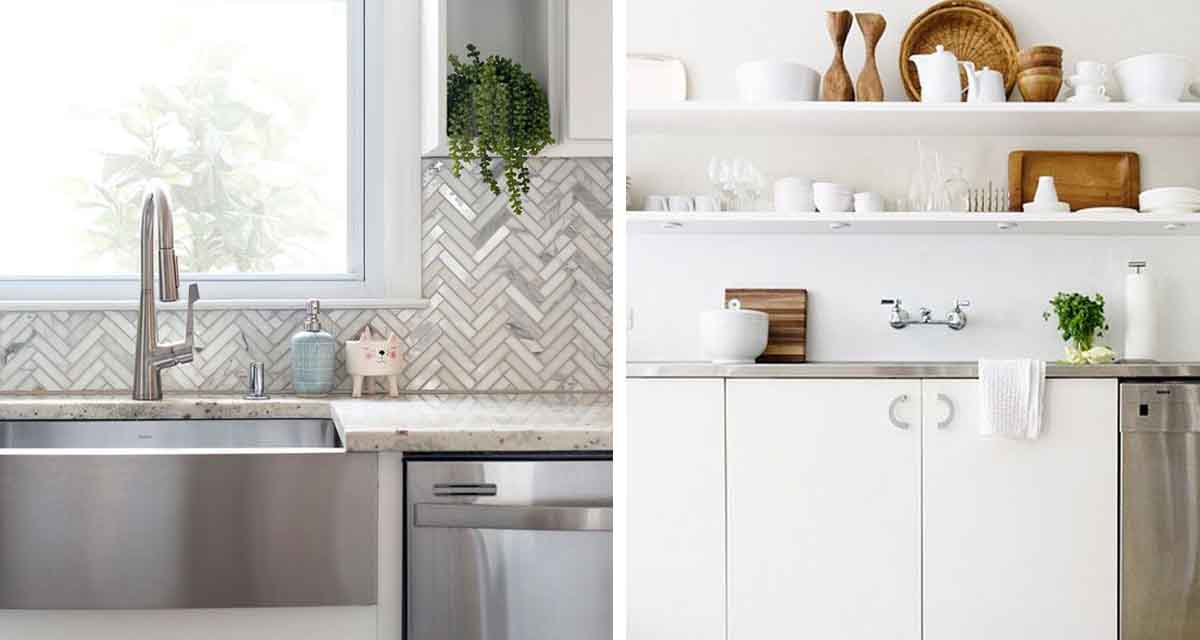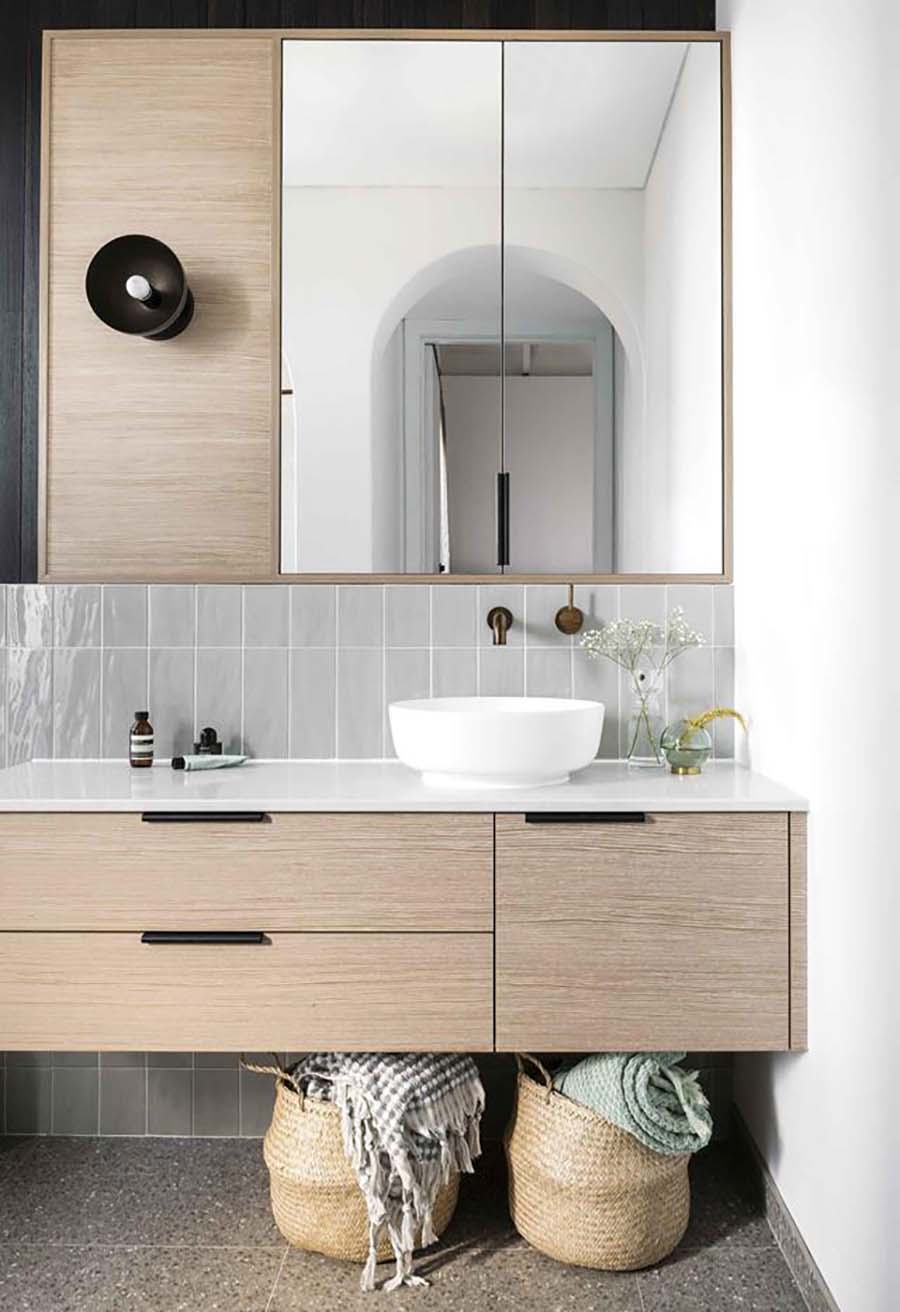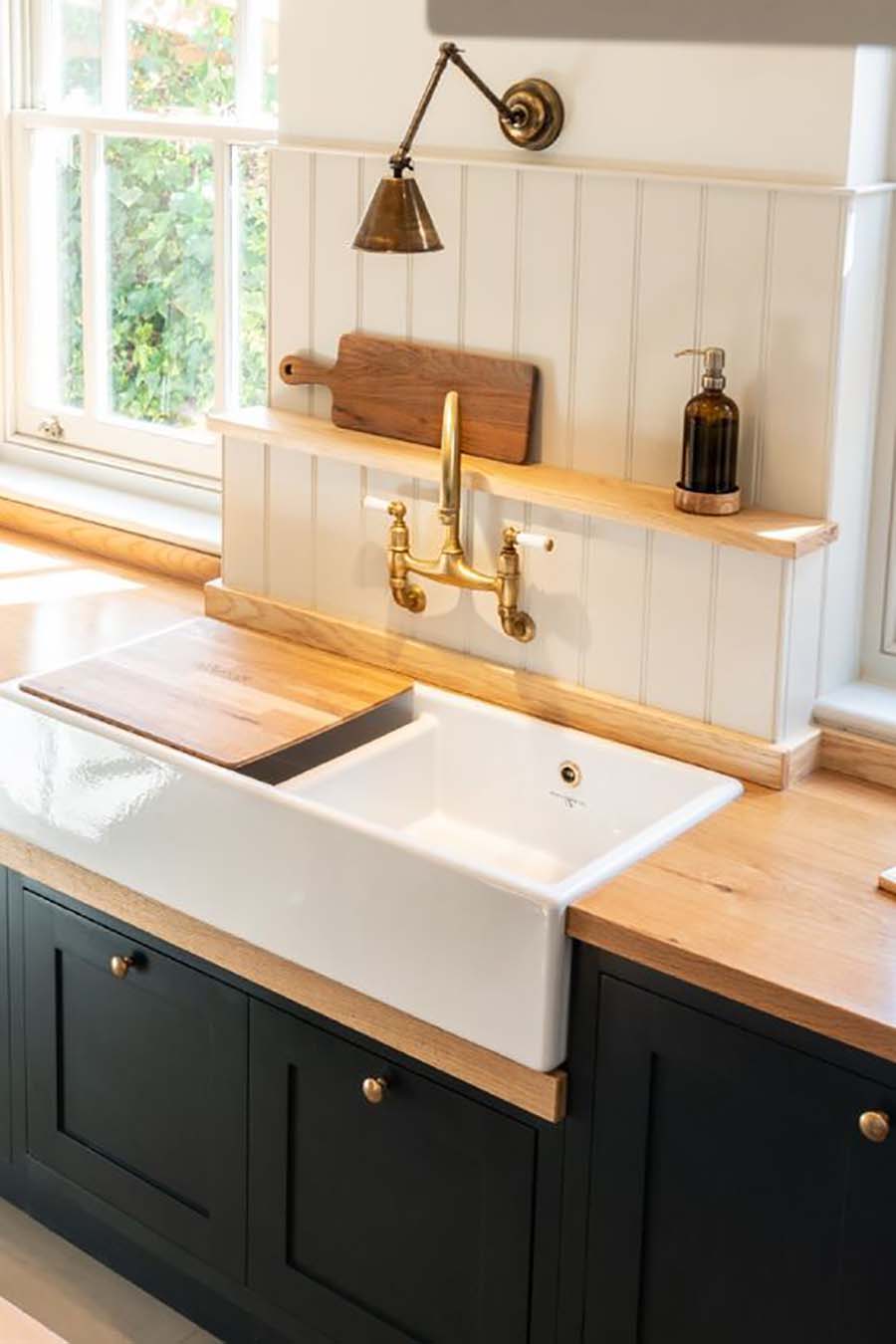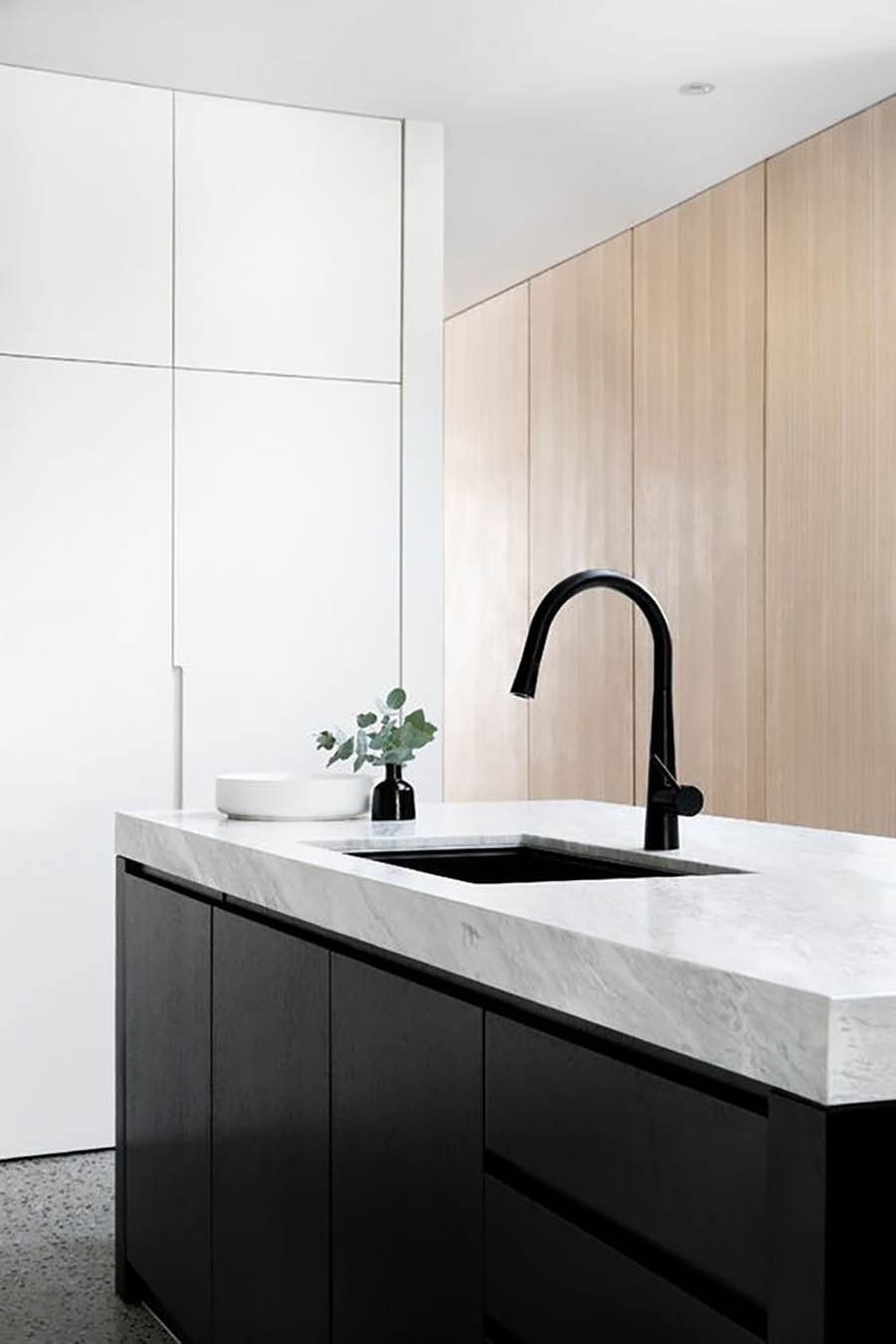While we’re on the subject of kitchens and taps, there is a case to be made for the wall-mounted kitchen tap. In bathrooms, a wall-mounted fixture is popular occurrence. It offers a very contemporary style, a cleaner look and leaves a wonderful blank, clean space behind the basin.
So the question is, why are we not doing the same in our kitchens?! Here’s what you need to know…
As the name implies, unlike the countertop version, wall-mounted kitchen taps attach to the wall behind the sink and extend over the sink itself.
The Pros
Many people choose them because of their clean look. It’s a style that is both functional in appearance, with a very contemporary effect. When you attach the taps to the wall, they really do become part of the backsplash as a design element.
The main pro is the blank space it leaves behind your sink, making it that much easier to keep clean. People are also less likely to pile their wet chopping boards behind the taps, so you’ll find less water and dirt accumulates there.
The Cons
These days, wall-mounted options are available in a variety of sizes and styles, however they are typically purposed designed for bathrooms. If you love a pull-out nozzle, or a tap that will swivel back and forth between sinks, then the wall-mounted version is not for you. They typically also cost more than countertop mounted options.
What Else Should You Consider?
If you do go ahead with a wall-mounted kitchen tap, just remember to check that your nozzle extends far enough over the back of the sink, so that when you are using the water it doesn’t just run out of the sink onto the counter. You’ll also need to consider enough space for placing pots and pans under the water without hitting the sides of the sink.
If you are tiling your backsplash, remember to check your tile pattern around the placement of the taps, to make sure that the tile edges and placement of the taps all align with each other.
A stone slab backsplash will also require some attention to detail. Your template will need to be exact so that the holes align with the plumbing in the wall, and the exact placement you need the tap on the wall.
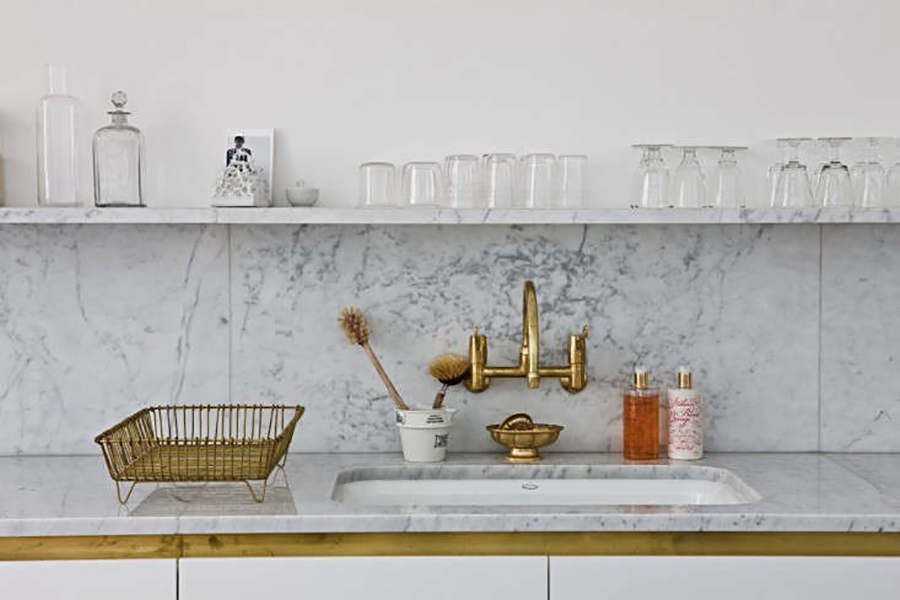
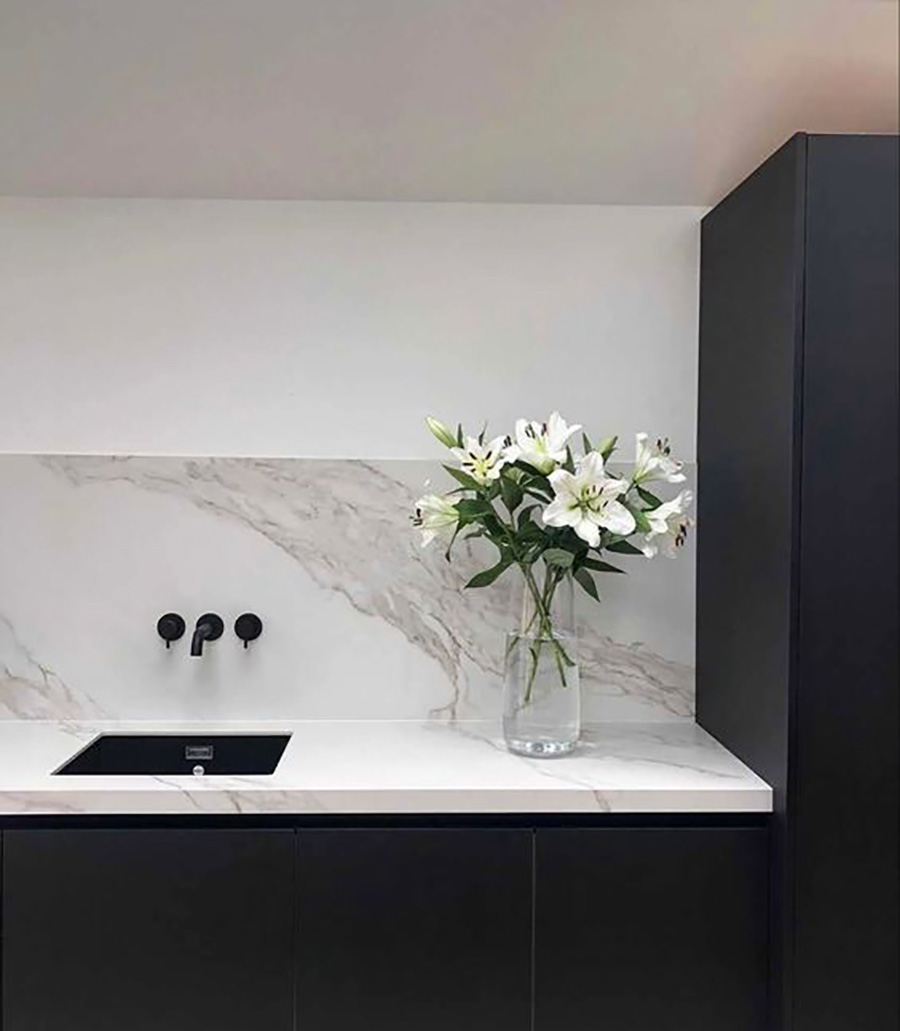 Images 1 | 2
Images 1 | 2


